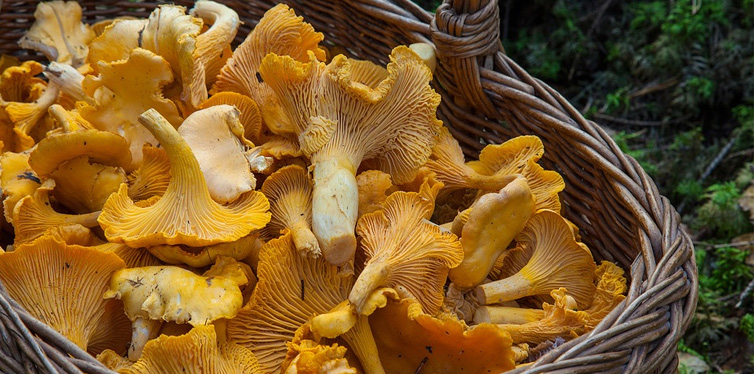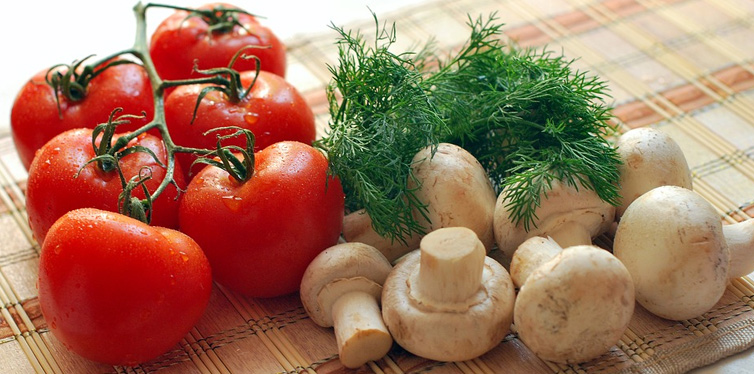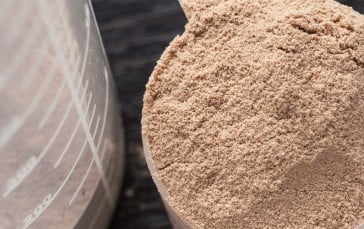Mushrooms And Their Health Benefits
If you’ve ever been out in the wilds in the fall and come across a mushroom, inevitably the first thought is, ‘Can I eat it?’ Then with a closer inspection, you are likely to recall dire words of warning about dangerous fungi and how some can can turn your stomach or your head inside out, or worse, make you dead. And how, unless you are a fungi expert, don’t ever assume you know your edible ’shrooms from your poisonous toadstools. Yet, mushrooms have been a part of the stable across the world for centuries, if not eons. People still enjoy them and are happy to explore their endless variety from the safety of a supermarket selection, yet few know they don’t just taste good, they do your health good.
Mushrooms are one of the healthiest foods grown on earth. They are packed with essential nutrients and yield a lot of health benefits. They are a good source of vitamin C and D and contain many vital minerals such as potassium, phosphorus, magnesium, sodium, niacin, riboflavin, thiamin and folate.
Some of the prominent health benefits of eating mushrooms are:

1. Increased Production Of Vitamin D
Vitamin D is an essential nutrient critical for the optimal functioning of many body systems. It is vital for proper growth and development of bones and strong teeth since it improves the absorption of calcium in the body. It also supports the body’s immune system, aids weight loss, and has antidepressant properties.
The main source of vitamin D is natural sunlight and this is the same reason it is called the Sunshine Vitamin. Even though exposing the body to direct sun rays cause negatives like sunburn, early aging or types of skin cancers, a deficiency of vitamin D impacts on the overall body function by causing joint pains, muscular aches and general lethargy and even distortion of the long bones due to compromised bone strength and density. It also impacts on negatively on mood contributing to depression, anxiety and other psychotic disorders depending on the levels and duration of the deficiency.
The most efficient way to ensure a healthy intake of vitamin D is via daily exposure to natural sunlight avoiding the times of the day when the UVA is at its highest but vitamin D can also be maintained with the appropriate diet. Mushrooms are not only a good source of vitamin D but also act as an effective catalyst for maximum conversion of sunlight to vitamin D at the cellular level.
2. Reduced Cholesterol Level
High cholesterol levels are a major health issue and cited in most cases of cardiovascular disease and the main underlying contributor to cases of sudden cardiac arrest. Mushrooms have no cholesterol or fatty acids and contain very few carbohydrates. They are also an excellent source of lean protein which helps breakdown cholesterol when it is digested. Various fibers and enzymes help reduce cholesterol levels and assist with maintaining a healthy balance between the two types of cholesterol, LDL and HDL.
3. Boosts Weight Loss
Mushrooms are very low in calories yet are very nutritious which is why they are included in so many weight loss diets. Mushrooms boost metabolism and help burn more calories than usual. They are rich in various B vitamins including B2 and B3 which help turn carbohydrates into fuel and metabolizes proteins. It also metabolizes body fat resulting in a lean yet stronger body.
4. Cure Against Diabetes
Diabetes is one of the prevailing diseases of the advanced world. Mushrooms are considered a natural sugar regular by diabetics since they contain insulin and enzymes that convert sugars, including starch, present in the food. Mushrooms are also good for the liver and pancreas to ensure their correct functioning with the appropriate secretion of enzymes and hormones from the endocrine glands.
The appropriate formation and secretion of insulin in the body regulates blood sugar levels and is therefore beneficial for low level diabetics to their manage blood sugar levels via their diet. Diabetic patients are prone to infection even from minor cuts and injuries. Mushrooms contain natural antibiotics that fight bacteria and help the body fight off infection more effectively.
5. Strengthen Bones
Mushrooms are rich in calcium essential for the development, growth and repair of bones. Without a steady supply of calcium, your body will suffer bone weakness. Your body is unable to absorb calcium efficiently if there is a deficiency of vitamin D. Mushrooms not only contain a sufficient vitamin D but also boosts its production in your body resulting in stronger bones.
6. Cures Anemia
Mushrooms contain a good amount of iron and are good for anemia sufferers. They also contain copper which is an essential mineral for iron absorption through the gut wall. Without sufficient copper to carry the iron through from the stomach into the bloodstream, the body cannot absorb enough iron from food and quickly becomes deficient.
7. Anti-Inflammatory Agent
Due to their inflammatory properties, mushrooms have long been used in medicine. They contain a powerful antioxidant called ergothioneine which helps reduce inflammation. Mushrooms also help suppress some allergic reactions.
8. Defense Against Aging
Adding mushrooms into your diet slows down the aging process. They contain two powerful antioxidants, ergothioneine and glutathione. These antioxidants work together to maintain skin elasticity and prevent lines, wrinkles and sagging. They also play a role in improved cognitive abilities and prevent cognitive impairment in older age.
9. Boosts Immunity
Mushrooms boost the immune system and are thought to prevent the development of many diseases. Most varieties contain beta-glucan, a form of sugar that works with lentinan to improve immunity, lentinan being the most powerful and found in some special mushrooms such as shiitake.
10. Fights Against Cancer
Mushrooms cannot cure cancer. Yet. However, they have been shown to slow down the development of some types of tumor. As well as antioxidants, enzymes and the other health-giving agents mushrooms provide, the boost to the weakened immune system means that associated life-threatening respiratory infections, such as pneumonia or bronchitis are not as virulent and cannot take hold at a time when the body is at its weakest.
Conclusion
Not even a good dollop of butter and a smothering of cracked black pepper and vigorous frying reduce the health benefits of a mushroom. Early man must have undergone a trial by death to discover which taste good, which give you a nasty stomach or which can finish you off before pudding. Thanks to his adventurous spirit we can take our pick of Agaricus, which look mushroomy or chanterelle that’s weirdly alien or even enjoy the enoki, which doesn’t look like a mushroom at all, just a collection of plant stamen. Their endless variety and versatility along with proven health benefits like lowering cholesterol or managing diabetes mean they surely must be a stable source of protein in anyone’s balanced diet.















